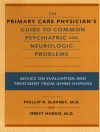The SAGE Handbook of Social Cognition is a landmark volume. Edited by two of the field′s most eminent academics and supported by a distinguished global advisory board, the 56 authors – each an expert in their own chapter topic – provide authoritative and thought-provoking overviews of this fascinating territory of research. Not since the early 1990s has a Handbook been published in this field, now, Fiske and Macrae have provided a timely and seminal benchmark; a state of the art overview that will benefit advanced students and academics not just within social psychology but beyond these borders too.
Following an introductory look at the ′uniqueness of social cognition′, the Handbook goes on to explore basic and underlying processes of social cognition, from implicit social cognition and consciousness and meta-cognition to judgment and decision-making. Also, the wide-ranging applications of social cognition research in ′the real world′ from the burgeoning and relatively recent fields of social cognitive development and social cognitive aging to the social cognition of relationships are investigated. Finally, there is a critical and exciting exploration of the future directions in this field.
The SAGE Handbook of Social Cognition will be an indispensable volume for any advanced student or academic wanting or needing to understand the landscape of social cognition research in the 21st century.
Tabella dei contenuti
Revisiting the Sovereignty of Social Cognition: Finally Some Action – C. Neil Macrae & Lynden K. Miles
Control, Awareness and Other Things We Might Learn to Live Without – B. Keith Payne
Implicit Social Cognition – Brian A. Nosek, Carlee Beth Hawkins & Rebecca S. Frazier
Consciousness, Metacognition and the Unconscious – Piotr Winkielman & Jonathan W. Schooler
Goals, Motivated Social Cognition and Behaviour – Henk Aarts
The Social Perception of Faces – Alexander Todorov
Mind Perception – Daniel R. Ames & Malia F. Mason
Socially Situated Cognition: Recasting Social Cognition as an Emergent Phenomenon – G n R. Semin, Margarida V. Garrido & Tomás A. Palma
Likes and Dislikes: A Social Cognitive Perspective on Attitudes – Melissa J. Ferguson & Jun Fukukura
Non-Verbal Perception – Nora A. Murphy
Embodied Social Thought: Linking Social Concepts, Emotion and Gesture – Autumn B. Hostetter, Martha W. Alibali & Paula M. Niedenthal
Levels of Mental Construal – Oren Shapira, Nira Liberman, Yaacov Trope & So Yon Rim
Judgment and Decision Making – David Dunning
Cognition and Action in the Social World – Ezequiel Morsella & Avi Ben-Zeev
Social Psychology of Emotion – Batja Mesquita, Claudia Marinett & Ellen Delvaux
Social Categorization and the Perception of Social Groups – Galen V. Bodenhausen, Sonia K. Kang & Destiny Peery
Self-Evaluation and Self-Knowledge – Jennifer S. Beer
Social Cognition in Close Relationships – Susan Andersen, S. Adil Saribay & Elizabeth Przybylinski
Representations of Social Groups in the Early Years of Life – Talee Ziv & Mahzarin R. Banaji
Social Cognitive Aging – William von Hippel & Julie D. Henry
Atypical Social Cognition – Elizabeth Pellicano
Social Cognition In Real Worlds: Cultural Psychology and Social Cognition – Beth Morling & Takahiko Masuda
Evolutionary Perspectives on Social Cognition – Joshua M. Ackerman, Julie Y. Huang & John A. Bargh
Thinkers′ Personalities: On Individual Differences in the Processes of Sense Making – Arie W. Kruglanski & Anna Sheveland
The Ideological Toolbox: Ideologies as Tools of Motivated Social Cognition – Aaron C. Kay & Richard P. Eibach
Gene x Environment Interactions in Social Cognition – Joan Y. Chiao, Bobby K. Cheon, Genna M. Bebko, Robert W. Livingston & Ying-Yi Hong
′One Word: Plasticity′ – Social Cognition′s Futures – Susan T. Fiske
Circa l’autore
Neil Macrae is a professor in social psychology from Aberdeen where he completed his ph.d. in 1990. He was until recently at Dartmouth College, New Hampshire, and he is currently professor of social cognition at the University of Aberdeen. His research is on core aspects of social cognition (e.g. person understanding, self) using both behavioral and neuroimaging approaches.
Neil Macrae is among the pioneers of social cognition, contributing (with M. Hewstone) the entry (article) on “social cognition” The Blackwell dictionary of cognitive psychology already in 1990. Lately, many more social psychologists have flocked to the brain scanners to resolve longstanding social and philosophical questions (such as questions of self) with neuroimaging methods. Neil Macrae is among the best examples of this feature of social cognition, and we have asked him to give one of the opening lectures to present social cognition as a scientific field.












